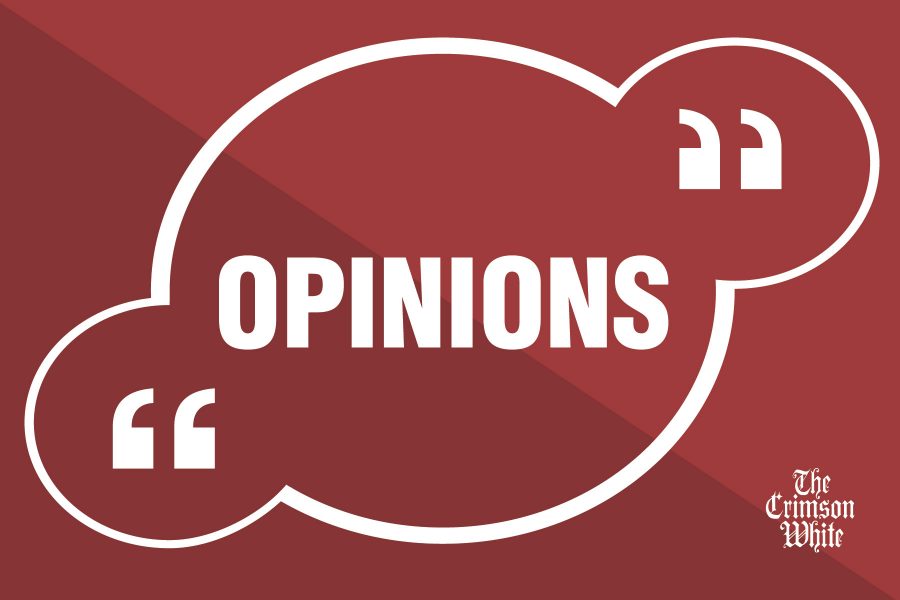If you’re white, you’re probably racist. I don’t necessarily mean you say openly bigoted things or that you like spending your weekends defending Confederate monuments (though you might be that brand of racist, too), I just mean that you probably have a lot of internalized racist beliefs that you most likely haven’t spent a lot of time unpacking. You’ve probably talked about being scared of the Walmart on Skyland Boulevard. You’ve probably seen a black person talk in one of your classes and thought with surprise, “Wow, they are so articulate.” You’ve probably loved a hairstyle or outfit on a Kardashian/Jenner and then called the same look “ratchet,” “ghetto,” or “unprofessional” when worn by one of the women of color who originated it. You might even love yelling out the n-word when it comes on in your favorite rap song and then shake your fist at the sky, cursing the politically-correct gods as you exclaim, “Well, if they say it, why can’t I!”
You being racist might not be entirely your fault. We’re raised in a society that devalues people of color with pretty much every opportunity it gets. We’re raised in a country where black people could literally be owned as few as four or five generations ago, and where they were actively being denied the right to vote during many of our parents’ lifetimes. We’re exposed to media that has type-casted people of color into a very narrow range of characters and tropes. If you’ve taken Psychology 101, you’ve seen the infamous baby doll test. Children as young as three and four are already socialized into believing that white children are inherently more beautiful and better behaved than black children.
Here’s what is your fault, though: failing to recognize the fact that, yes, you have racist beliefs and attitudes, and these might even sometimes be manifested into racist words or actions. Recent headlines regarding Bill Maher make for an exemplary case study of the “woke” white liberal who refuses to acknowledge that they’re probably more than a little racist. Though he has publicly apologized many times for using the n-word flippantly in a televised interview, he has excused his racism as something that “happened once” and petulantly resisted Ice Cube’s assertions that when it comes to race, he has been problematically toeing the line his entire career. Maher even went so far as to say that since he “grew up in an all-white town in New Jersey, not Alabama,” that “race wasn’t even an issue,” clutching dearly on to the old security blanket of Northern and West Coast white liberals that real racism can only exist south of the Mason-Dixon.
Maher refuses to see this incident as possibly being indicative of his larger attitudes towards race, but how could it not be? He felt comfortable using one of the most culturally loaded and offensive words casually on TV. And while he knows it was bad, he doesn’t want to participate in any sort of work getting to “the root of the psyche,” as Ice Cube suggested he and other line-toeing white guys should do. Bill Maher, like almost all of white America, wants to believe that he is post-racial. But by holding on to this belief, we engage in a dangerous sort of erasure of the racism that still plagues this country, extinguishing any chance we might have to address these issues and to attempt to fix them. When we pretend we are post-racial, we ensure that this will never be the case.
In today’s America, racism is everywhere yet nowhere. All people of color can attest to instances of racism that they have had to endure. Most sympathetic white people understand that this is the case, but would never go so far as to label themselves a racist. So how can all this racism exist without any racists?
It’s time for us as white people to accept that racism is embedded in all of us. This isn’t to say that you should be any less embarrassed and ashamed of any of your racists words or actions, it is to say that you should stop reacting with so much disbelief, with so much “I don’t have a racist bone in my body!”, with so much “I would have voted for Obama for a third time if I could have!” When all your energy is going into denying and defending, you will have none left to go into reflecting and revising.
And no, this isn’t a case of what some will almost certainly decry as “white guilt.” You shouldn’t feel guilty for being white. You should feel guilty for judging someone or treating them differently because of a difference in pigmentation, and then not working to change this conduct.
Guilt, however, can only go so far. This guilt must spur change and growth within the individual so that problematic beliefs and behaviors can be corrected. It must go much further than, say, inviting black speakers on to your television show only to then deny their critiques of you. All of us must get to “the root of the psyche,” which is challenging and often terrifying work. However, if we ever want to be able to look at ourselves and maybe know that paralyzing word, racist, doesn’t apply to us, this is the work that must be done.









